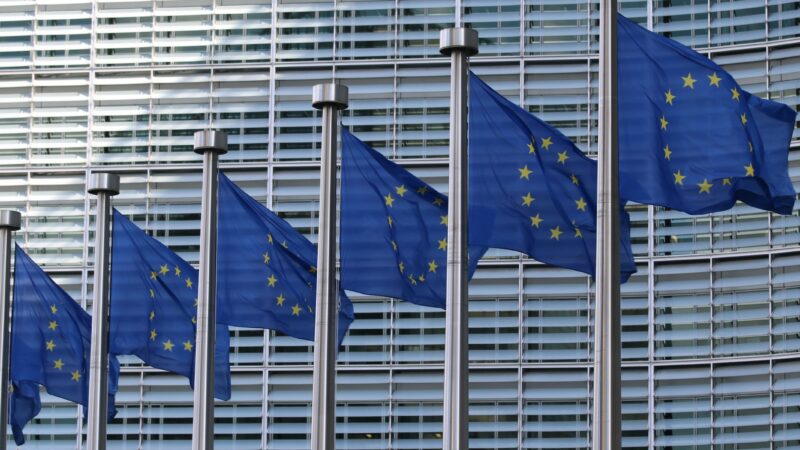Cause for Remembrance
As the poppy-adorned date of Remembrance Sunday moves into view, with ceremonies and processions set to take place on the 12th November, I couldn’t help but recall a quote from Nietzsche: “The future belongs to those with the longest memory.”
Typical of seemingly every Nietzsche quote it is dropped mid-essay with little to no further context, moulded to fit the context of the essay being written with little to no regard for the message which Nietzsche is trying to convey to the reader; a message which journalist and philosopher Alain de Benoist outlines with expert clarity:
“What he [Nietzsche] means is that Modernity will be so overburdened by memory that it will become impotent. That’s why he calls for the “innocence” of a new beginning, which partly entails oblivion.”
For Nietzsche, a fixation on remembrance, on recollecting everything that has been and everything that will be, keeps us rooted in our regrets and our failures; it deprives us of the joys which can be found in the present moment and breeds resentment in the minds of men.
As such, it is wise to be select with what we remember and how we remember it, should we want to spare ourselves a lifetime of dizzying self-pity and further dismay. In my mind, as well as millions of others, the most destructive wars in human history would qualify for the strange honour of being ‘remembered’, yet so too would other events, especially those events which have yet to achieve fitting closure and continue to encroach upon the present.
As of this article’s publication, it is the 20th anniversary of the disappearance of Charlene Downes, presumed murdered by the Blackpool grooming gangs. At the time of her murder, two Jordanian immigrants were arrested. Iyad Albattikhi was charged with Downes’ murder and Mohammed Reveshi was charged with helping to dispose of her body. Both were later released after denying the charges.
Currently, the only person sentenced in relation to the case was Charlene’s younger brother, who was arrested after he punched a man who openly joked that he had disposed of Charlene’s body by putting it into kebabs, according to witness testimony; information which led the police to change their initial missing person investigation to one of murder.
As reported in various media outlets, local and national, throughout their investigation, the police found “dozens more 13- to 15-year-old girls from the area had fallen victim to grooming or sexual abuse” with an unpublished report identifying eleven takeaway shops which were being used as “honeypots” – places where non-white men could prey on young white girls.
Like so many cases of this nature, investigations into Charlene’s murder had been held up by political correctness. According to conservative estimates, Charlene is just one of the thousands of victims, yet only a granular fraction of these racially motivated crimes has resulted in a conviction, with local councillors and police departments continuing to evade accountability for their role in what is nothing short of a national scandal.
However, it’s not just local officials who have dodged justice. National figures, including those with near-unrivalled influence in politics and media, have consistently ignored this historic injustice, many outrightly denying fundamental and well-established facts about the national grooming scandal.
Keir Starmer, leader of the Labour Party and likely the next Prime Minister, is one such denialist. In an interview with LBC, Starmer said: “the vast majority of sexual abuse cases do not involve those of ethnic minorities.”
If meant to refer to all sexual offences in Britain, Starmer’s statement is highly misleading. Accounting for the 20% of cases in which ethnicity is not reported, only 60% of sexual offenders in 2017 were classed as white, suggesting whites are underrepresented. In addition, the white ethnic category used such reports includes disproportionately criminal ethnic minorities, such as the Muslim Albanians, who are vastly overrepresented in British prisons, further diminishing the facticity of Starmer’s claim.
However, in the context of grooming gangs, Starmer’s comments are not only misleading, but categorically false. Every official report on ‘Group Sexual Exploitation’ (read: grooming gangs) has shown that Muslim Asians were highly over-represented, and the most famous rape gangs (Telford, Rotherham, Rochdale) along with high-profile murders (Lowe family, Charlene Downes) were the responsibility of Asian men.
As shown in Charlie Peters’ widely acclaimed documentary on the grooming gang scandal, 1 in every 1700 Pakistani men in the UK were prosecuted for being part of a grooming gang between 1997 and 2017. In cities such as Rotherham, it was 1 in 73.
However, according to the Home Office, as they only cover a subset of cases, all reports regarding the ethnic composition of grooming gangs necessarily reject large amounts of data. As such, they estimate between 14% (Berelowitz. 2015) and 84% (Quilliam, 2017) of grooming gang members were Asian, a significant overrepresentation, and even then, these figures are skewed by poor reporting, something the reports make clear.
One report, which focused on grooming gangs in Rotherham, stated:
“By far the majority of perpetrators were described as ‘Asian’ by victims… Several staff described their nervousness about identifying the ethnic origins of perpetrators for fear of being thought racist; others remembered clear direction from their managers not to do so” (Jay, 2014)
Another report, which focused on grooming gangs in Telford, stated:
“I have also heard a great deal of evidence that there was a nervousness about race in Telford and Wellington in particular, bordering on a reluctance to investigate crimes committed by what was described as the ‘Asian’ community.” (Crowther, 2022)
If crimes committed by Asians were deliberately not investigated, whether to avoid creating ethnic disparities to remain in-step with legal commitments to Equality, Diversity, and Inclusion, or to avoid appearing ‘racist’ in view of the media, estimates based on police reports will be too low, especially when threats of violence against the victims is considered:
“In several cases victims received death threats against them or their family members, or threats that their houses would be petrol-bombed or otherwise vandalised in retaliation for their attempts to end the abuse; in some cases threats were reinforced by reference to the murder of Lucy Lowe, who died alongside her mother, sister and unborn child in August 2000 at age 15. Abusers would remind girls of what had happened to Lucy Lowe and would tell them that they would be next if they ever said anything. Every boy would mention it.” (Crowther, 2022)
Overall, it is abundantly clear that deeds, not words, are required to remedy this ongoing scandal. The victims of the grooming gang crisis deserve justice, not dismissal and less-than-subtle whataboutery. We must not tolerate nor fall prey to telescopic philanthropy. The worst of the world’s barbarities will not be found on the distant horizon, for they have been brought to our shores.
As such, we require an end to grooming gang denialism wherever it exists, an investigation by the National Crime Agency into every town, city, council and police department where grooming gang activity has been reported and covered-up, and a memorial befitting a crisis of this magnitude. Only then will girls like Charlene begin to receive the justice they deserve, allowing this crisis to be another cause for remembrance, rather than a perverse and sordid aspect of life in modern Britain.











The White Man’s Latest Burden
“Take up the White Man’s burden; Send forth the best ye breed; Go bind your sons to exile; To serve your captives’ need” – Rudyard Kipling, from The White Man’s Burden (1899).
The relationship between foreign policy and immigration is relatively straightforward, yet routinely overlooked and often manipulated. Since Hamas’ attack on Israel and the ensuing bombardment of Gaza – an act which has sparked widespread protest across the Western world, overwhelmingly constituted of migrants and their descendants – there have been calls amongst the neoconservative commentariat for Britain to “Stand Up for Israel”, which – for the uninitiated – means funnelling more money to the Middle East.
Once again, neoconservatives (a.k.a. leftist and liberal infiltrators of the right) are advocating military support to foreign countries and generally running defence for imprudent militarism, both of which increase the risk of mass migration to the West; contributing to the Islamification of the Western world and the retreat of Western liberalism within its own borders, a subject which neocons love to talk about.
Those of us on the paleoconservative right who oppose attempts at humanitarian intervention do so with the knowledge that such actions do risk creating more destabilising migration, disrupting the already very fragile state of Western countries; a fragility revealed by the imported ethnic tensions which have since exploded onto the streets, arising not from an investment in Britain’s national interest, but the interests of other nations.
As such, giving Israel a blank check to do whatever it wants shouldn’t be Britain’s top priority. Putting aside the evident bloodlust of the chickenhawks and the various ethical problems of taking the plea for “proportionality” to its logical conclusion, the idea that any allegedly right-leaning commentator should use their airtime to run defence for every decision the IDF makes, without considering the second-hand consequences for the British state, should be challenged whenever the opportunity arises.
I have no problem with a neighbour using self-defence when confronted with a late-night burglar, but if his idea of self-defence is to fire a nuke in the home invader’s general direction, people from the town over might have some concerns. Similarly, a government’s decision to start a war is its own, but to call ‘feign knights‘ immediately after attacking the enemy in an especially vulgar way is unlikely to win support from the right-minded member of society. This may seem a bit hyperbolic, but you get the general idea – Israel should not be allowed to use self-defence as an excuse to create another migrant fiasco and expect us to make-do.
Alas, the British establishment prides itself on being the sharpest arrow in the United States’ increasingly spacious quiver; if Israel is America’s greatest ally, then Israel is Britain’s greatest ally as well.
Left-wing so-called ‘anti-imperialists’ (I use that phrase only half-seriously) are capitalising on the contradictions within neoconservatism, maintaining the West is simply facing the consequences of its actions. Palestinians shouldn’t suffer because of their government’s actions, but the British should. By portraying immigration as a mere component of a larger Western imperialist ratchet, leftists hope to depoliticise the issue of immigration. In turn, they hope to divert people’s concerns away from domestic policies they entirely condone, especially the concerns of traditional Labour voters and their longstanding opposition to mass immigration.
What’s that? Your daughter got molested by a Pakistani man who laughed about turning her into a kebab? Tut-tut. If only you’d opposed intervention in Kosovo, you could’ve prevented it! Guess you’ll just have to put up with things as they are. Don’t Look Back in Anger.
No matter how much that complain about them, it remains fact that leftists march in lockstep with liberals and centrists on immigration. To paraphrase a now legendary tweet, you can exist on the left and support some degree of privatisation (i.e., as a social democrat) but you can’t exist of the left and oppose immigration. Contemporary leftism isn’t about ‘material interests’ or whatever, it’s about anti-whiteness.
It would take a great deal of reform, but there is nothing stopping Britain from arming foreign nations and denying entrance to foreigners, refugee or not. However, that’s beside my point, and certainly beside the point of leftists trying to con people into ignoring the demise of their own communities.
Together, neoconservatives and leftists have reinvented the White Man’s Burden. The former has popularised the idea that the West has a moral responsibility to intervene when other parts of the world fall short of liberal democratic practice, whilst the latter insists it is the burden of the West – that is, an extension of its moral obligation to arbitrate the world – to import every person that tries to cross the border, despite what we know about the UK’s foreign-born population.
According to the 2021 Census, the three most common non-UK countries of birth are India, Poland, and Pakistan, quite similar to the results of the census 20 years prior. Contrast this with the targets of major Western interventions over the past 20 years, all of which are much further down the list: Iraq (40), Afghanistan (43), Syria (52). Non-Western countries with larger foreign-born diasporas in the UK include Nigeria, China, Bangladesh, Philippines, Kenya, Sri Lanka, Ghana, Zimbabwe, Jamaica, Turkey and Somalia, all of which are in the top 30.
Of course, political events are reflected in the data. The Syria-born population of the UK grew considerably between 2001 and 2021, but this still implies Britain’s demographic complications aren’t primarily the result of Team America-style foreign escapades.
Rather, they are the result of an immensely stupid decision to liberalise border restrictions for the sake of Diversity – the official state dogma since the early noughties – to maintain a steady supply of cheap and flexible labour, and to keep the national Ponzi scheme – that is, the UK’s pension system – afloat until Islamists wipe out London with their DWP-funded nuclear arsenal. In short, foreign wars definitely haven’t helped, but they’re not the root cause.
Despite this, neoconservatives have tried to make the recent public displays of ethnonarcissism about the future of “Judeo-Christian” liberal values in the face of resurgent “Islamofascism”, whilst leftists have construed concerns about the protests as a deviation from the West’s need to demonstrate moral leadership – that is, to stand up for the downtrodden Palestinians and, of course, to import Infinity Migrants.
Liberals consider themselves above tribal notions of loyalty, insisting on a fundamental commitment to abstract ‘values’, whilst the socialist is a patriot – a patriot for every nation except his own.
And just when things couldn’t get any worse, Daftywaffen’s glorious leader has been allowed back on Twitter weeks before another mass protest in London on Remembrance Day – what a coincidence!
At a time when Britain is experiencing the inevitable fallout of the left-liberal immigration dogmas and neoconservative foreign policy, with hostility to the humanitarian ratchet at an all-time high, what the public needs to remember is the real threat to stability isn’t mass immigration but the FAR-RIGHT (!!!).
As we all know by now, protests are a milleniLOL ‘Generation Left’ pipedream. Remember when protesting British intervention in Iraq worked? Remember when a protest was allowed to occur that didn’t already have state backing? Me neither. Call me crazy, but I doubt Israel is going to take “proportional” action over a protest in London, just as I doubt a hundred-or-so people with British flags will stop our political class from wrecking the country.
Indeed, it is remarkable how literally every anti-British faction has developed a reason as to why the British people need to put their authentic convictions on the backburner and do exactly what they want at this exact moment.
If you want to stop the scourge of Islamism within British society, the foremost threat to our Western liberal-democratic values, you must place Israel first and foremost in your political considerations; our struggles in defence of Civilisation are one and the same.
Send forth the best ye breed (to the Middle East).
If you want to stand up for your nation’s monuments and armed forces, you need to rally around a man funded by pro-Israel think-tanks to counteract anti-Israel protests, even though people with similar convictions to yourself have been arrested for far less.
Go bind your sons to exile (for protesting with an English flag).
If you want to stop the systematic grooming of white girls, you need to suspend your opposition to immigration and support Palestine; you need to accept any wave of “asylum-seekers” which you created and won’t be allowed to deport, even if their application is denied under our very liberal laws.
To serve your captives’ need (by importing them to your native land).
Ultimately, it is not our burden to take up arms in defence of foreign states – overtly or covertly – or accept mass immigration. The Israel-Hamas War is simply not our fight. Middle England doesn’t care about Israel or Palestine. Middle England cares about England and the sooner a British government is prepared to place Britain at the heart of its foreign policy, rather than vague and destructive humanitarian ideals, the better.
Photo Credit.